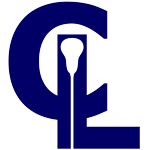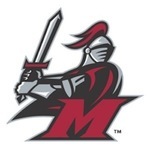Delaware Valley University
Profile
Size
3 / 10Cost
9 / 10Selectivity
1 / 10-
Team Conference
MAC Freedom Conf.
-
College Type
4-year, Private non-profit
-
Campus Type

Suburb: Large
Student Body
Gender
- Male
- Female
Enrollment
- Full Time
- Part Time
Geography
- In-State
- Out-of-state
- Foreign
- Other
Ethnicity
- White
- Black
- Asian
- Latino
- Foreign
- Other
Other includes American Indian, Native Alaskan, Native Hawaiian or other Pacific Islander, two or more races and unknown race / ethnicity.
Coach Recruiting Interview
Be proactive and take a real interest in learning more about a specific university or college are the first steps for placing yourself on a college coaches radar. Asking specific questions and sending personalized emails to coaches are great ways to catch a coach’s attention and further increase the likelihood that you’ll be recruited.
We spoke with Delaware Valley College Head Men’s Lacrosse Coach Gary Mercadante about college lacrosse’s recruiting landscape and what it takes to play lacrosse at the collegiate level. Mercadante joined Delaware Valley just two months after it announced the addition of five new NCAA Division III sports. In its 2015 inaugural season, DelVal welcomes it’s first recruiting class and will compete in the MAC Freedom conference.
What advice do you have for players interested in playing DIII lacrosse?
First, determine the type of school you are interested in based on things such as size, majors offered, and location. There are a wide variety of DIII colleges that offer lacrosse and this will help you narrow down your search.
Focus on your academics. Your success in the classroom will help you in the admissions process and financially. DIII institutions cannot offer athletic scholarships, but many offer excellent academic scholarships. Most student-athletes do not realize until it is too late that their performance in the classroom can greatly impact the cost of their college tuition.
What’s the best way to get on your recruiting radar? Any things recruits shouldn’t do?
Be proactive in the process. If you are interested in a school reach out to the coach with a personal email. Let us know why you are interested and where you will be playing (tournaments, club team, etc.) Our staff makes a point during the summer to try to see every student-athlete that emails us.
Do your research. I am impressed when I speak with a student-athlete who is knowledgeable about our college, what we offer, and our program. It demonstrates you have taken the time to educate yourself about us and have a legitimate interest in the school and our team.
Take ownership of the college search process. Players often make the mistake of mass emailing coaches or having their parents send emails for them. Coaches can tell when an email has been sent to 50 coaches because it is generic and sometimes addressed to the wrong coach or college. These are the ones we often disregard. Also, make sure to clear your voicemail so a college coach can leave you a message.
What’s a question you wished recruits asked you more during the recruiting process?
Asking about coaching style is important. Every coach is different and you want to find out early if you fit into their system and coaching style. Also, ask what the coach envisions your role being on and off the field.
What are a few indicators that help you determine whether a good high school player will become a great college player?
We look for tough athletes who play with a competitive edge. We want players who consistently work hard to improve their game and hone their skills. I am always watching off-ball during recruiting events to see who does the “little things” well (communication, cutting, setting screens, etc.). We try to identify these things throughout the process.
What’s special about being a student-athlete at Delaware Valley College?
Our student-athletes are well balanced, which is an important part of the college process and of preparing them for life after graduation. 100% of our students will gain real world experience before graduation. DelVal is one of the few colleges in the country that requires an experiential learning component, individualized to each student’s major. Our students are building their careers from day one and ending with the creation of professional portfolios that incorporate experiences such as internships, study abroad, research and civic engagement.
How has the accelerated recruiting process impacted your approach to recruiting?
While it has not changed my direct approach to recruiting, the D1 model of early recruiting has impacted the number of great lacrosse players that are still looking for a college as juniors and seniors. A lot of them are players that either peaked late in their high school careers or did not get a chance to start until their junior or senior year.
Recruits are now reaching out to us to express their interest earlier and earlier in the process. It can be a positive as long as the student-athletes do their research and focus on finding the right school for them.
Even with all of the changes in the recruiting landscape, we still find many of our players at showcases/tournaments and by speaking with high school and club coaches.
ConnectLAX is a third party recruiting service and not affiliated with or endorsed by Delaware Valley College or Gary Mercadante.
Team Road Trips
Most games are played in Pennsylvania. They also play in New York, Virginia, and New Jersey.
Recruit Commits
2023 | |||
Hometown |
Position(s) | ||
| Dalton Richter | Dover, PA | Att, Mid | |
2021 | |||
Hometown |
Position(s) | ||
| Joshua Temple |

|
Baltimore, MD | Def |
2020 | |||
Hometown |
Position(s) | ||
| Luke Kelchner |

|
Medford, NJ | Def, LSM |
2019 | |||
Hometown |
Position(s) | ||
| Travis Berman |

|
River Edge, NJ | Att |
| Chris Morgado | Royersford, PA | Att, Mid | |
2018 | |||
Hometown |
Position(s) | ||
| Ben Napieralski |

|
Lancaster, NY | Att |
| Christian Kobosko |

|
Newark, DE | Def, LSM |
| Ben Napieralski | Lancaster, NY | Att | |
| Sean Mylod | Howell, NJ | Def | |
| Anthony Zervoudis | Warrenton, VA | Mid | |
| Onge. Lucien St | York, PA | Mid | |
| Chris Dearden | Ambler, PA | Mid, Faceoff | |
| Jeff Marshall | Ambler, PA | Def | |
2017 | |||
Hometown |
Position(s) | ||
| George Frueh | Jackson, NJ | Def | |
| Lou Martorella | Commack, NY | Mid, Faceoff | |
| Alex Gundersen | Sinking Spring, PA | Att | |
| Orterro Felton | Maplewood, NJ | Mid, Def | |
| Paul Intini | Hellertown, PA | Mid, Faceoff | |
| Timmy Russell | Catonsville, MD | Goal | |
| Jadon Mitchell | Syracuse, NY | Def | |
| Andrew Looney | Middleburg, VA | Mid | |
| Mitchell Tice | Lebanon, PA | Att | |
| Jerad Wilson | Avondale, PA | Def | |
| Matthew Waibel | West Grove, PA | Att | |
| Brandon Keller | Bel Air, MD | Att | |
| Stefan Jones | Stamford, CT | Def | |
2016 | |||
Hometown |
Position(s) | ||
| Eddie Smith | York, PA | Att | |
| Jon Knode | La Plata, MD | Mid | |
| Noah Brenizer | Dillsburg, PA | Def, LSM | |
| Bryan Thompson | Ledgewood, NJ | Mid, Faceoff | |
2015 | |||
Hometown |
Position(s) | ||
Events By Delaware Valley University Coaches
Location
Team Videos
Where Grads Live
- Greater Philadelphia Area
- Greater New York City Area
- Allentown Pennsylvania Area
- Harrisburg Pennsylvania Area
- Baltimore Maryland Area
- Reading Pennsylvania Area
- Washington D.C. Metro Area
- Lancaster Pennsylvania Area
- Scranton Pennsylvania Area
- Greater Boston Area
- York Pennsylvania Area
- Charlotte North Carolina Area
- Greater Pittsburgh Area
- Greater Atlanta Area
- Greater Chicago Area
Where Grads Work
- Merck
- Teva Pharmaceuticals
- GSK
- Prudential Financial
- Johnson & Johnson
- Bristol-Myers Squibb
- The Janssen Pharmaceutical Companies
- Army National Guard
- Wells Fargo
- USDA
- Pfizer
- US Army
- Penn State University
- Charles River Laboratories
- ADP
What Grads Do
- Operations
- Sales
- Education
- Entrepreneurship
- Research
- Support
- Healthcare Services
- Information Technology
- Administrative
- Finance
- Program and Project Management
- Consulting
- Human Resources
- Accounting
- Marketing
Niche Grades
Overall Experience

Student Life

Professor Rating

Academics

Athletics

Campus

Academics
Test Scores
This range represents the middle half of incoming freshman from the 25th to 75th percentile. The writing component is now optional and no longer reported. Historical writing ranges: 410 - 530 for SAT; 6 - 8 for ACT
This distribution represents incoming freshman test scores and GPA on 4.0 scale.
Admissions
Total |
Male | Female | |
| Applicants | 1,676 | 769 | 907 |
| % Admitted | 93% | 91% | 94% |
| % Admits That Enroll | 24% | 23% | 25% |
| Incoming Freshman Average GPA | 3.3 |
Admission Considerations
Required | Rec. | |
|---|---|---|
| High School GPA | ||
| High School Rank | ||
| High School Transcript | ||
| College Prep Classes | ||
| Recommendations | ||
| Demonstrate Competencies | ||
| Admission Test Scores | ||
| Other Tests (Wonderlic, etc.) | ||
| TOEFL (English proficiency) |
 Admissions office
Admissions office
Majors / Programs
Degrees offered by popularity. Type = Bachelor.
 Athlete graduation rate
Athlete graduation rate
Financial
Net Price
Average net price = sticker price - financial aid.
$28,016
Average net price by income for incoming freshman receiving financial aid.
Net price for all students (private non-profit and for profit institutions).
Sticker Price
Sticker price = estimated total cost of attendance.
Undergraduate | ||
On Campus | ||
| Tuition & Fees | $40,620 | |
| Books & Supplies | $1,000 | |
| Cost of Living | $14,620 | |
| Personal Expenses | $1,800 | |
| Sticker Price | $58,040 | |
Personal expenses includes laundry, transportation, entertainment and furnishings.
Financial Aid
100% of full-time, incoming freshman receive financial aid.
Receiving Aid % | Avg. Aid Amount | |
Type of Aid | ||
| Grant or Scholarship | 100% | $27,205 |
| Federal Grants | 36% | $5,217 |
| Pell Grants | 36% | $4,746 |
| Other Federal | 24% | $704 |
| State & Local Grants | 30% | $3,677 |
| Institutional Grants | 100% | $24,200 |
| Student Loans | 94% | $9,914 |
| Federal Loans | 94% | $6,009 |
| Other Loans | 22% | $16,883 |
All financials shown for full-time, incoming freshman.
Total Amount | Per Student | |
Endowment | ||
| Financial Assets | $33.6 Million | $13,830 |
Value of endowment assets at fiscal year end.
Debt
Total federal debt after graduation for undergrad borrowers: $25,700.
Total cumulative student debt by percentile.
Total Principal | Monthly Payment | |
| 10 Year Repayment | $16,500 | $273 |
Most student loans have a grace period before repayment begins.
3 Year Avg. Default Rate: 7.3%
Avg. rate for colleges with lacrosse is 5.1%.
Total federal debt excludes private student loans and parent PLUS loans. Cumulative debt cohort includes 1,166 students.
Salary
Earnings 10 years after enrollment: $42,100
Earnings of former students working by percentile.
Earnings of former students who received federal financial aid. Figures shown are median.
Payback
How long until this college investment pays off: 6.93 years.
Median debt and foregone earnings divided by median earnings. Foregone earnings assumes 4 years to graduation; at this school, 54% of students graduate on time.
Team Social
Campus Safety
On Campus |
In Res. Halls |
|
|---|---|---|
Criminal Offenses |
||
| Murder | - | - |
| Negligent Manslaughter | - | - |
| Rape | 2 | 2 |
| Fondling | 1 | 1 |
| Incest | - | - |
| Statutory Rape | - | - |
| Robbery | - | - |
| Aggravated Assault | 1 | 1 |
| Burglary | 5 | 5 |
| Motor Vehicle Theft | - | - |
| Arson | - | - |
In Residence Halls are a subset of On Campus statistics. Murder includes non-negligent manslaughter.
The crime data reported by the institutions have not been subjected to independent verification by the U.S. Department of Education. Therefore, the Department cannot vouch for the accuracy of the data reported here. Statistics represent 3-year average data.
Data from The National Center for Education Statistics (NCES), the primary federal entity for collecting and analyzing data related to education.
Carnegie Classifications
Category |
Classification |
|---|---|
| Basic Classification | Master's Colleges & Universities: Small Programs |
| Undergrad Instruction | Professions plus arts & sciences, some graduate coexistence |
| Graduate Instruction | Postbaccalaureate: Education-dominant, with other professional programs |
| Enrollment Profile | High undergraduate |
| Undergrad Profile | Four-year, full-time, selective, higher transfer-in |
| Size and Setting | Four-year, small, highly residential |
Carnegie classifications provide a framework for evaluating comparable schools.


 See more college grades
See more college grades Free ACT and SAT test prep
Free ACT and SAT test prep Free SAT test prep
Free SAT test prep Free scholarship search
Free scholarship search
















